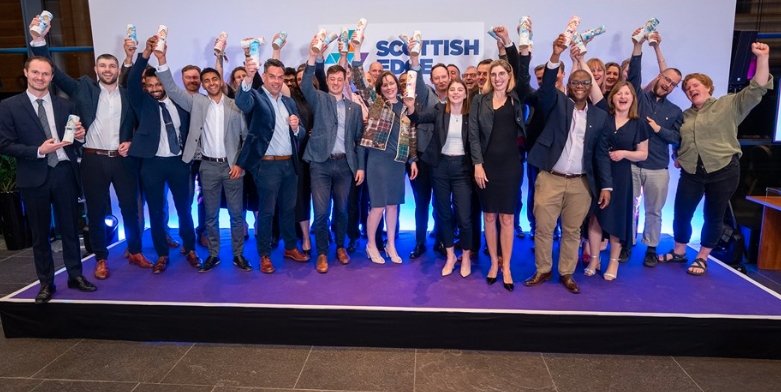Forty years ago, Crawford Beveridge returned from California—a place then brimming with start-up energy—to take the helm of the newly formed Scottish Enterprise.
He inherited a nation struggling with a simple but critical problem: a lack of companies. “We in Scotland have been aware that as a nation we seem to have lost some of that entrepreneurial drive,” Beveridge said. His assessment triggered a landmark national inquiry into why Scotland’s business birthrate lagged.
The resulting 1991 Business Birthrate Enquiry and the 1993 Business Birthrate Strategy became global talking points, studied by the OECD and copied abroad. The vision then was simple but ambitious: broaden participation in entrepreneurship, get more people started, and build a culture where creating a business was both possible and normal.
Today, that vision is a fading memory.
From Broad Participation to Narrow Gatekeeping
Scotland’s entrepreneurial machine has slowed. Despite big-budget strategies and new agencies, the numbers tell a story of stagnation. Business creation rates remain stubbornly low, and the cultural dynamism of the early ’90s has thinned out.
The national conversation has narrowed, often fixating on “high growth” companies and elite start-up founders—particularly in the tech sector.
That focus has advantages: it attracts capital, builds clusters, and raises international profile. But it comes at a cost. Local economies in rural areas, female-led start-ups, and communities with low economic activity are often left out of the picture.
Growth doesn’t just come from unicorns. It also comes from the coffee shop that becomes a hub, the joiner who starts her own workshop, the catering business born from a kitchen table. These ventures may never pitch to venture capitalists, but they create resilience and keep money circulating locally.

What We’ve Forgotten
The original Business Birthrate Strategy didn’t just target a handful of elite ventures. It aimed to normalise starting up. There were local advisers who knew your name, walk-in enterprise centres, and a support system that didn’t require navigating jargon or ticking a narrow set of boxes.
That grassroots energy mattered. Entrepreneurship was understood as a deeply human act—one that gave people agency, identity, and purpose.
Somewhere along the way, that ethos was traded for glossy presentations, centralised strategies, and a reliance on metrics that favour large-scale winners over broad participation.
| Then | Now |
|---|---|
| Local walk-in advice centres | Centralised digital portals |
| Focus on “more people starting” | Focus on “fewer but faster-growing” |
| Inclusive across sectors | Priority on tech and scale-ups |
| Human relationships with advisers | Automated systems and selective filters |
Why It Matters Now
Scotland stands at an inflection point. Global trends—AI, demographic shifts, political uncertainty, and climate pressures—are reshaping how economies work. In such a moment, a wide base of entrepreneurial activity isn’t a luxury; it’s a necessity.
Real, everyday entrepreneurship spreads problem-solving capacity across society. It allows communities to adapt instead of being left behind. And in a world where traditional employment pathways are shifting, it creates alternative ways for people to participate in economic life.
Yet current policy often assumes that the biggest job creators are the highest-growth start-ups—an outdated belief in an era of automation and remote work.
Questions We Should Be Asking
The upcoming Enlighten event will open this debate beyond policy circles. Rather than a lecture from experts, it will be a participatory conversation, tackling questions such as:
-
Why has business start-up fallen off the national radar?
-
Who gets included—and excluded—from today’s entrepreneurial systems?
-
What kind of enterprise culture does Scotland actually want?
-
How do we design support that works for the many, not the few?
This is about more than nostalgia. It’s about deciding whether the future of Scotland’s economy will be built by a narrow elite or by a broad cross-section of its people.
The Call to Action
Entrepreneurship has always been messy, personal, and rooted in courage. It thrives where there is space, belief, and support.
Rebuilding Scotland’s entrepreneurial compass means recognising that the next big transformation might come from a remote island shop owner, a teenager launching an online brand, or a retiree opening a repair service—not just from the next Edinburgh tech unicorn.
The compass is still there. But the needle will stay stuck until we widen the lens, rebuild inclusive systems, and measure success not just by capital raised, but by how many people get the chance to start.


















